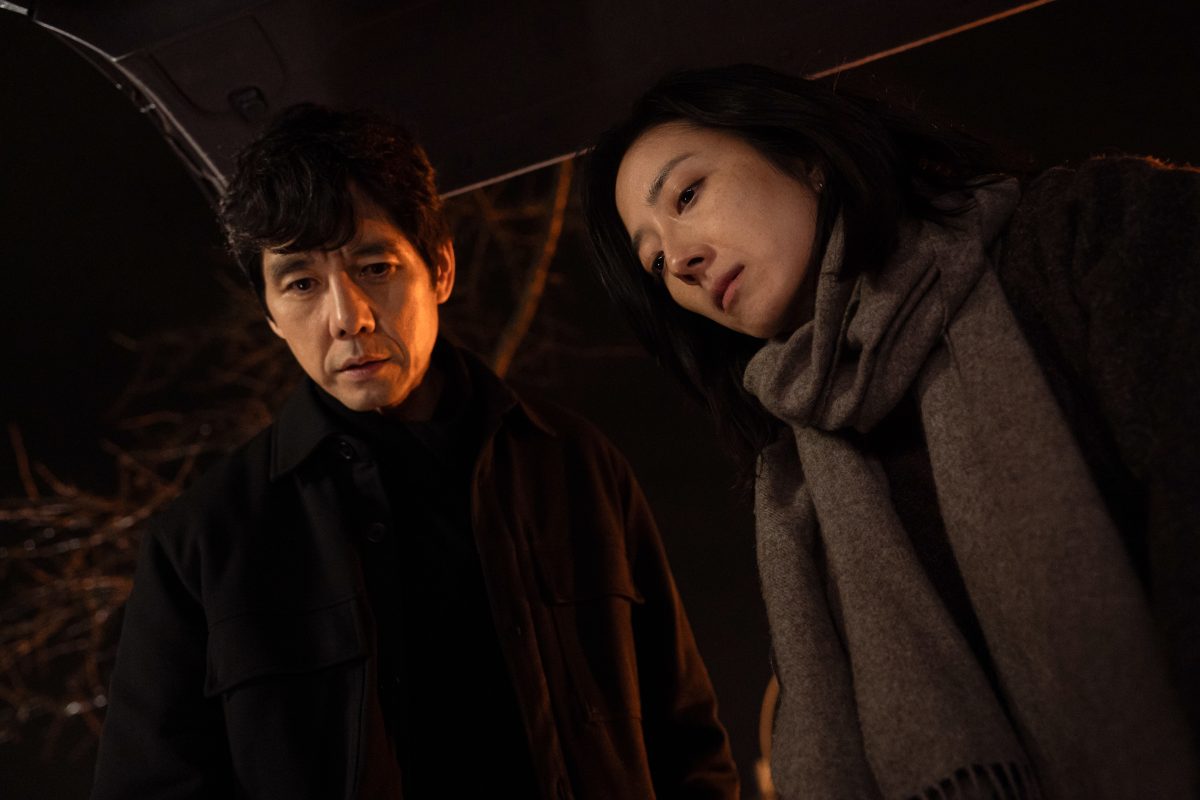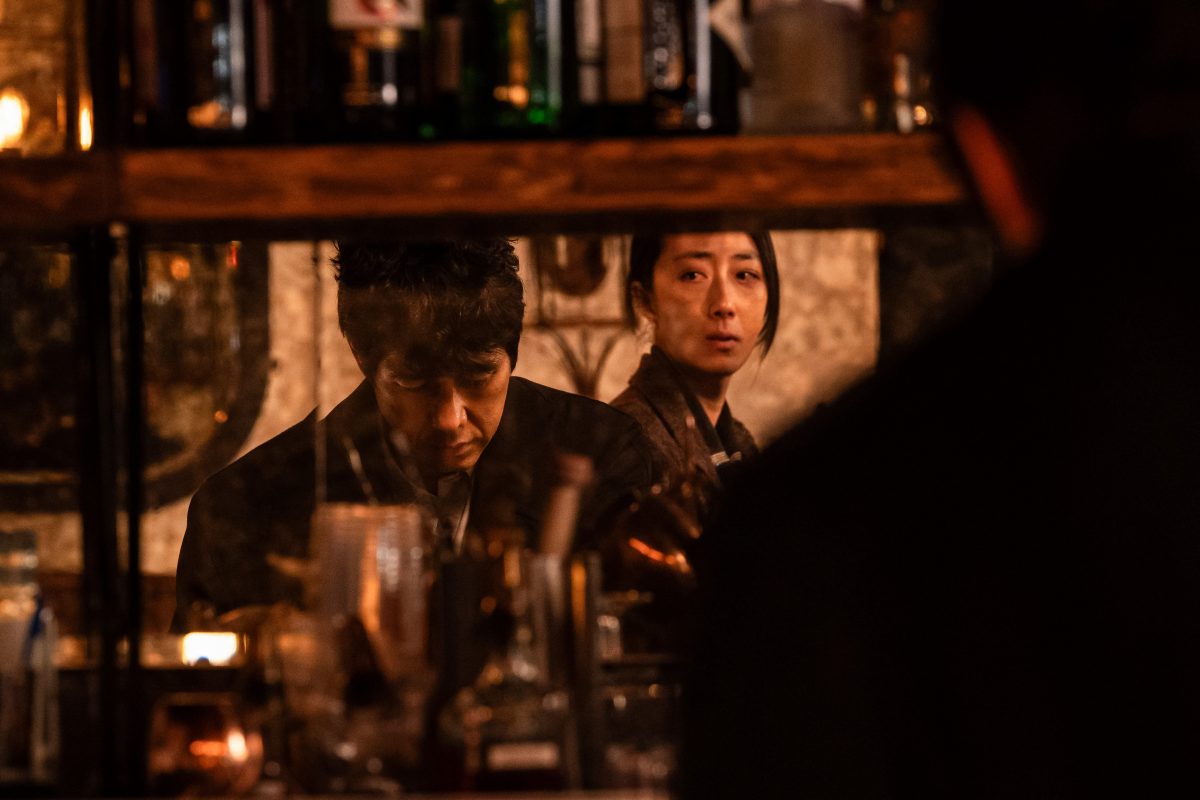Dear Stranger (2025) ‘BIFF’ Movie Review: A Layered Portrait of Marital Discontent and Fragile Masculinity
Tetsuya Mariko’s Dear Stranger (2025) offers a deeply layered exploration of marital discontent, fragile masculinity, and bourgeois anxieties, creating an intense narrative that stands out amidst the backdrop of contemporary cinematic dramas. Premiering at the 2025 Busan International Film Festival (BIFF), the film delves into complex themes of class, gender, and emotional turmoil, all while unraveling the tension between the main characters, Kenji and Jane. Let’s break down what makes Dear Stranger such a compelling yet challenging watch.
Plot Overview
Set against the backdrop of New York, Dear Stranger follows Kenji Saiga (played by Hidetoshi Nishijima), a Japanese assistant professor of architecture, and his Taiwanese-American wife, Jane Yang (played by Lun-Mei Gwei), who have settled into a seemingly perfect life with their young son, Kai. However, beneath the surface of this seemingly happy family lies a growing tension in their relationship.

Kenji is consumed with securing a higher position in his field, while Jane, a puppeteer dramatist, feels increasingly isolated as she juggles the responsibilities of raising their child. The crux of the film lies in the psychological warfare between the two, with Kenji’s self-centeredness exacerbating Jane’s growing resentment.
Mariko takes a bold approach with this film, choosing to focus more on the interiority of his characters rather than relying on a plot-driven narrative. The kidnapping case, which serves as the backdrop of the film, is not treated as a typical thriller, but instead, the film uses this event to explore the characters’ internal struggles and their fractured relationship.
Character Development and Performances
Kenji Saiga is a complex character, one whose ego and insecurities shape his actions throughout the film. Mariko’s screenplay skillfully delves into the nuances of Kenji’s psyche, revealing his self-doubt and vulnerability. Hidetoshi Nishijima’s performance captures Kenji’s internal conflict, allowing the audience to see him not just as a self-assured intellectual but as a man grappling with his fragile masculinity.
On the other hand, Jane’s character arc is equally compelling. Lun-Mei Gwei portrays Jane with a delicate balance of strength and frustration. Her frustration with Kenji’s selfishness is palpable, but her deep love for him is equally clear. The film effectively explores how both characters are trapped in their own perceptions of one another, making it a poignant commentary on the complexities of modern relationships.
Themes and Motifs: Puppetry and Ruins

Mariko utilizes puppetry and ruins as recurring motifs throughout the film, adding layers of symbolism to the story. The ruins serve as a metaphor for the emotional decay within Kenji and Jane’s marriage, while the puppets represent the characters’ desire to control their circumstances and narratives. These motifs create a rich, thought-provoking atmosphere that ties into the central themes of power dynamics, control, and emotional manipulation.
The connection between the two symbols — ruins and puppets — is seamlessly integrated into the narrative. The ruins are not just artifacts of the past but also reflect the emotional wreckage that both characters carry with them. Meanwhile, the puppetry element highlights the way the characters try to “manipulate” their reality, controlling their emotions and actions even as they’re unraveling.
Mariko’s Directorial Approach: A Subtle Critique of Society
Mariko’s direction is a testament to his understanding of emotional depth and character complexity. The film’s pacing is deliberate, and while it may feel slow to some, the careful attention to the characters’ emotions makes it all the more rewarding. Mariko’s direction is marked by its restraint, allowing the emotions to simmer beneath the surface before finally erupting in powerful, cathartic moments.
The film doesn’t shy away from a societal critique, especially in terms of the bourgeois lifestyle that Kenji and Jane lead. Mariko addresses the class divide between the couple and the working-class character, Donny (played by Julian Wong), whose financial struggles contrast sharply with Kenji’s privileged position. The narrative reveals how class anxiety shapes their decisions and personal identities, creating a layered portrait of modern societal pressures.
Cinematography: A Surreal, Naturalistic Approach
The film’s cinematography by Yasuyuki Sasaki and Rikuo Ueno enhances its surreal undertones. The camera work captures moments of emotional tension while also offering a dreamlike quality that emphasizes the characters’ inner turmoil. The visuals complement Mariko’s writing, ensuring that every scene feels immersive and poignant. The surreal moments are juxtaposed with the raw, gritty reality of the characters’ lives, creating a sense of disorientation that mirrors their emotional states.
Comparison to Other Works
In terms of emotional intensity, Dear Stranger draws comparisons to films like Ingmar Bergman’s ‘Scenes from a Marriage’ and Noah Baumbach’s ‘Marriage Story’. While it may not have the raw gut-punch of Bergman’s work, Dear Stranger offers a similar level of emotional insight into the dynamics of a crumbling marriage. Like Baumbach’s film, it focuses on the delicate balance of love and resentment, showcasing how small cracks in a relationship can eventually lead to a complete breakdown.
A Challenging Yet Rewarding Experience
Dear Stranger (2025) is a brilliant and emotionally charged film that explores the complexities of marriage, masculinity, and class with a sharp, intellectual approach. While the film is filled with tension and uncomfortable moments, it’s precisely this discomfort that makes it a powerful narrative about the fragility of human relationships. Mariko’s ability to craft a film that is both intellectually stimulating and emotionally raw is commendable, and Dear Stranger is undoubtedly a film that will leave a lasting impression.
For fans of psychological dramas that don’t rely on genre tropes but instead focus on deep character study, Dear Stranger is a must-watch.
FAQs About Dear Stranger (2025)
1. What is Dear Stranger about?
Dear Stranger explores the psychological battles within a marriage between Kenji and Jane, examining themes of marital discontent, masculinity, and class through the lens of their troubled relationship.
2. Who stars in Dear Stranger?
The film stars Hidetoshi Nishijima as Kenji Saiga and Lun-Mei Gwei as Jane Yang.
3. What is the significance of the puppetry and ruins motifs?
The puppetry and ruins symbolize the characters’ need to control their lives and the emotional decay within their relationship.
4. What other films is Dear Stranger comparable to?
Dear Stranger draws comparisons to Bergman’s ‘Scenes from a Marriage’ and Baumbach’s ‘Marriage Story’, both of which focus on the complexities of love and conflict in marriage.
5. Where can I watch Dear Stranger?
Dear Stranger is currently available for viewing at the 2025 Busan International Film Festival (BIFF) and will likely see a wider release afterward.
Final Thoughts
Dear Stranger is a challenging and deeply rewarding film that explores the fragility of human relationships through a sophisticated, multi-layered narrative. Tetsuya Mariko’s ability to balance emotional depth with intellectual complexity makes this a must-watch for fans of thought-provoking cinema.
What did you think of Dear Stranger? Share your thoughts in the comments and join the conversation on InvestRecords.com!


Comments are closed.